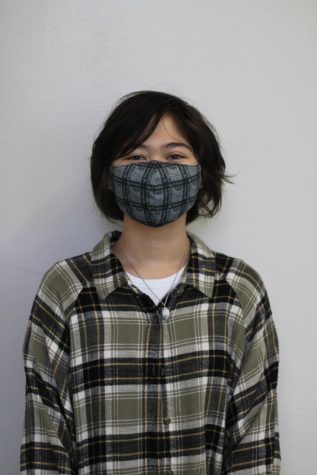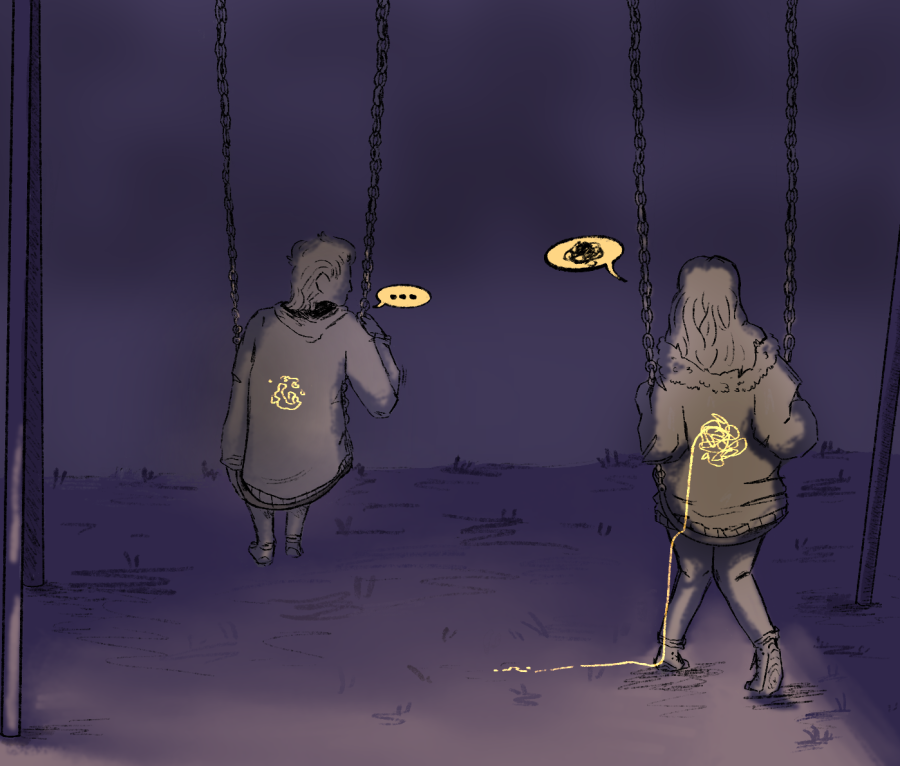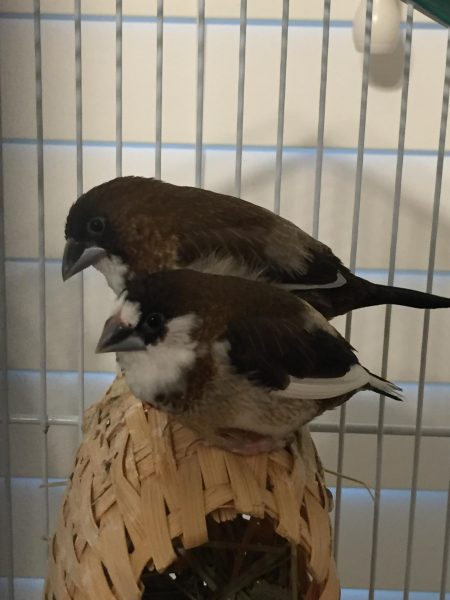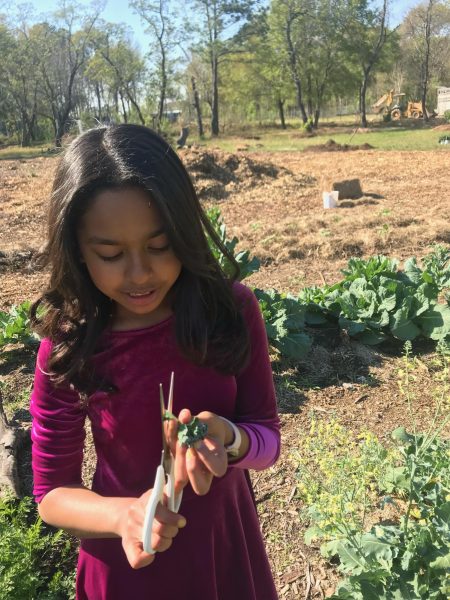Personal Column: The right way to empathy
Artistic depictions of my personal struggles with understanding and empathizing with emotions.
There’s a kid crying, screaming really, on the ground and everything goes still.
“It hurts! It’s broken, I’m going to die!” He wails, his friends rush over and start to ask what’s wrong, as if they hadn’t just watched him fall from his attempt of climbing an oak tree.
“You’re not going to die, you only fell out of a tree,” I said, observing from afar.
Stares. That’s all I received for just being straight to him as he sniffles and glares at me– as if I pushed him down the tree myself. I avoided them, feeling as if my skin was on fire from all of them looking at me. Why were they looking at me?
They all went back to shushing him and asking what they could do to help, someone running in to get a teacher. I just decided to approach him, looking at his wrist which he was flailing around. It was bruised.
“Oh, it’s probably sprained. You have to stop moving and elevate it then, otherwise, the pain will get worse.”
An older kid from grade 2 just shook her head at me. She seemed upset but I couldn’t tell you why she would be.
“Now’s not the time.”
So I shut up. I was confused, why had no one just given him advice on how to make the pain stop?
A teacher came out, all frantic like a distressed mother hen, holding the boy’s hand while they walked back into the classroom. The day went on, class returned to normal, but I still felt my gut do weird twists as the rest of the day the others looked at me in weird ways. I got chided for being rude by a friend, something about how I should have been more sympathetic.
What did I do wrong?
****
“My aunt passed away last night.”
My friend sobbed, she had blotchy tears rolling down her face and her lips were trembling. We were secluded at night from the rest of the pre-teens at a sleepover, sitting on a swing set in the middle of December. I stopped swinging for a moment, this is the part I’m supposed to say something.
I know what it’s like losing a loved one, my grandma passed away not too long ago on my father’s side and I can still remember the sting of my eyes or the closing of my throat. I can remember how I felt… something. Sad is the best word to say I suppose, but more disoriented, like if I was a fish knocked out of its current.
I should get this, yet no matter how hard I tried to say something to make her feel better, how hard I tried to search my word bank of endless phrases that I watched people say on television. I know what she was experiencing, but it was like I couldn’t put myself in her shoes. A phrase I struggled to connect to as a child, and it’s still sometimes difficult to understand how I’m supposed to fit into those shoes.
I just sighed, looking at my feet, and muttered, “That sucks, huh.”
She snorted, and for a moment I thought I made her laugh. Mission success. Before realizing that I was getting a look- no, actually it was a glare- thrown in my direction.
“Yeah it kind of does ‘suck,’ an ‘I’m sorry’ would have been nice you know?!”
It would have? I made a mental note and went to try again but she already got up and walked back into her house, another girl from the sleepover confused at my friend’s crying stumbles as she’s pushed past.
I watch her walk away and I feel my heart pulsate. The ground around me felt like it was chipping away as I tried to rack my brain for how I messed up. How I somehow managed to make someone I cared for feel even worse.
I wasn’t able to look her in the eyes after that, and she never tried to catch mine either.
****
Articulating my emotions is half the battle when going through therapy. Every time I walk into a group session in an office filled with warm lighting and shuffling awkward seats, I feel as though I come out of it with big old eyes like a goldfish.
It wasn’t that they weren’t beneficial. They were. It just felt as though I struggled to add to the conversation or to communicate how I felt. So I tried what seemed to work most of the time: write a script.
Usually, I just did it in my head. Someone is crying? Ask them if they need anything and if they respond with a yes or no then go onto the next step, ask them if something’s wrong and see what they respond with. It’s nothing mind-boggling or interesting, in reality, it’s quite simple, just stick to the built-in “how to” guide and I’m good to go. If everyone’s going to have silent little rules they were never going to share then I’d just be one step ahead.
But therapy is a bit more than just responding to someone else, it’s a lot more than just being a step ahead. It’s about talking about yourself, there’s no script to being yourself.
I need to say how I feel, simple. It’s just that somehow that “simple” task wasn’t so easy for me. When I try to figure out what I’m feeling it’s like I’m just trying to untie a bunch of wires that are all different colors so it should be easy, but I’m colorblind. All the yellow strings look identical to orange. All the “sad” feelings feel identical to “anxious,” and it’s hard to distinguish between either of them. Even when I can, it feels like verbalizing it, putting it into words can be so difficult.
It’s not that I don’t want help, or that I’m not upset, it’s that I have a hard time putting it into words without having to do it in such a specific way that it becomes overwhelming.
“Try to write it down, if you don’t know what you are feeling, try your best to describe it in a way that helps you the best,” I remembered my therapist had suggested once when I expressed a hardship in trying to talk out my feelings.
“Like a script?” I asked back.
“If that works for you, sure!” He replied while walking me out of the office that day.
So… I started writing. But everything I wrote would draw a blank. Another crumpled paper, another awkward line erased. The logistics aren’t working, I suppose emotions don’t have logistics. So I went to the next best thing, the arts.
I’ve always loved art, the intricate details, the way everything seemed to have a meaning- or it was a play on some sort of construct that already existed. It played with social norms, why couldn’t it play with emotions?
I started writing now, but this time like everything was a scene. Suddenly the word “sad” was merely just a snowstorm with an uncomfortable warmth, the feeling of anxiety just the image of a beached whale.
It was ridiculous. Yet in a way I had never felt my emotions so clearly before in my life. It was like I was finally becoming visible, they could finally hear me, they could finally see where I was standing.
Suddenly feelings became just a bit easier to understand.
****
“I’m sorry little dude, I don’t think I can really do it today.” I was tired, physically exhausted from what my eyebags were telling me when I looked in the mirror- or how my joints seemed to ache like a rusty door hinge. I had been studying really hard for finals the past few weeks, and on top of a flurry of other upsetting feelings, I was winded while sitting on the ground next to a rowdy nine-year-old.
The boy just blinked and nodded his head at me.
“Yeah, you look sick,” he replied, going back to his dino-themed puzzle that he had been working on for at least an hour, “are you sick?”
“No, I’ve just been working really hard and for a really long time for school, so my body isn’t doing the best and my brain is going to be operating slower. I won’t be able to play with you as much as I usually do. It’s like how cheetahs wear themselves out when they run too much.” I said, trying to draw a connection between something I knew he liked and how I was emotionally exhausted.
“Oh… well then you should get some sleep,” The boy said matter-of-factly, placing two puzzle pieces together.
It was nice to hear the sentiment I was thinking thrown right back at me, even if it was from a literal child.
“Yeah I probably should, but I have another final coming up tomorrow so I can’t really do that bud,” I replied, and he paused while placing his puzzle pieces together and turned towards me.
“That sucks.” He said, looking up at me with slightly hopeful eyes before returning to his puzzle, which seemed to be some sort of long-neck dinosaur.
The reply he had given was all too familiar, but it was nice to hear. Working with kids who come from different walks of life meant that I worked with kids who were neurodivergent and in different programs all the time. For years I was told that they were a “hassle to work with” or that “it’s not easy,” as if there was something wrong with them. Yet every kid I had worked with was a joy to have around, if anything it felt like they understood me a lot better than some of my own co-workers.
Neurodivergence covers an array of different types of people, and I’m one of them. So inevitably when the boy responds the same way I cannot help but laugh and nod, happy that he isn’t riddled with the same useless anxieties I had running through my mind at a similar age. Because… yeah, it did suck. All the tireless nights, all the studying? It all sucked, the kid perfectly put it into words the same way I would have at his age.
“Yeah,” I replied, “it really does suck, huh?”
Your donation will support the student journalists of Carnegie Vanguard High School. Your contribution will allow us to cover our annual website hosting costs and fund field trips, competition fees, and equipment. We appreciate your support!

Rinn is a senior at Carnegie who is originally from Japan and loves to thrift. He likes to express himself through clothes and jewelry he finds thrifting,...











raphael • Dec 17, 2022 at 11:35 am
you write well
Ayushi Mohanty • Dec 13, 2022 at 10:41 pm
This was a fantastic read, and I really appreciated your honesty! Great job!
Audrey Piczak • Dec 13, 2022 at 8:40 pm
I love this story so much, the dialogue is perfect!
Kaz • Dec 13, 2022 at 7:19 pm
This article is as well written as a full book, I could read something like this all day. The art piece is beautiful as well and fits the writings style amazingly, great job wrynn I’m so proud of you!
Sasha • Dec 13, 2022 at 12:10 pm
I really love the anecdotes in your story!
Hagar Cohen • Dec 13, 2022 at 10:46 am
I love how your story flows and the way your anecdotes are organized!
Abigail Nunez • Dec 13, 2022 at 10:38 am
Wow, I really liked this story and how the struggle was emphasized so well.
Ava Manchac • Dec 13, 2022 at 10:12 am
this is so relatable. I love this story so much and it’s very well written.
Bao Ngyuen • Dec 13, 2022 at 10:05 am
I <3 the quotes you used and the narrative thread of your article, it's beautifully, beautifully written and the ending was the cherry on top to an amazing sundae. U are amazing, great job Rinn!!